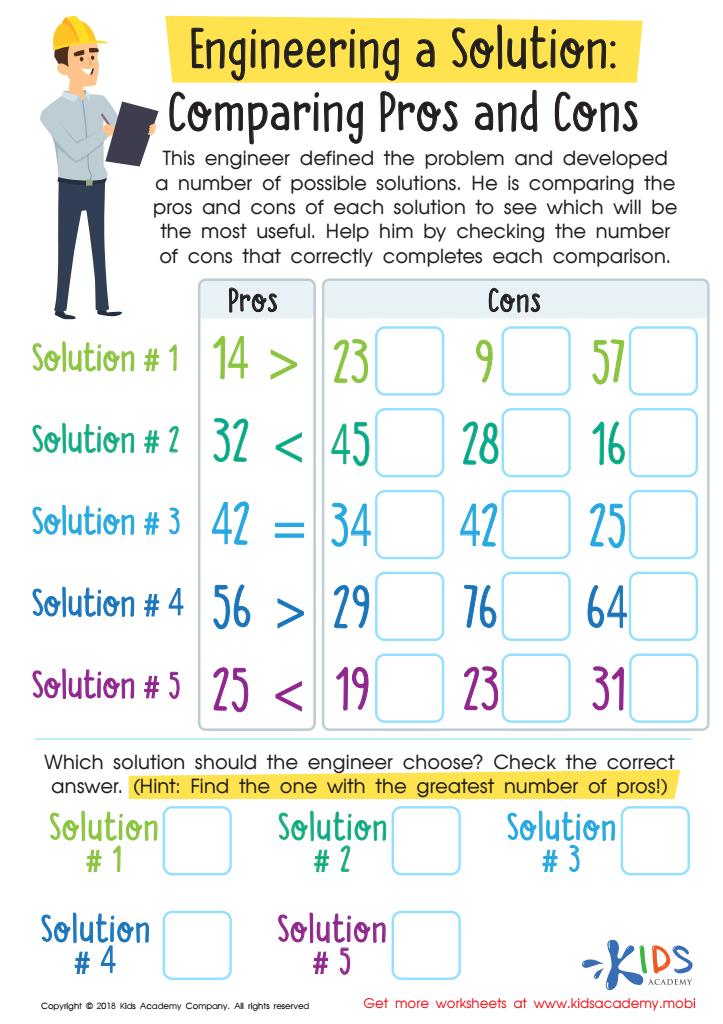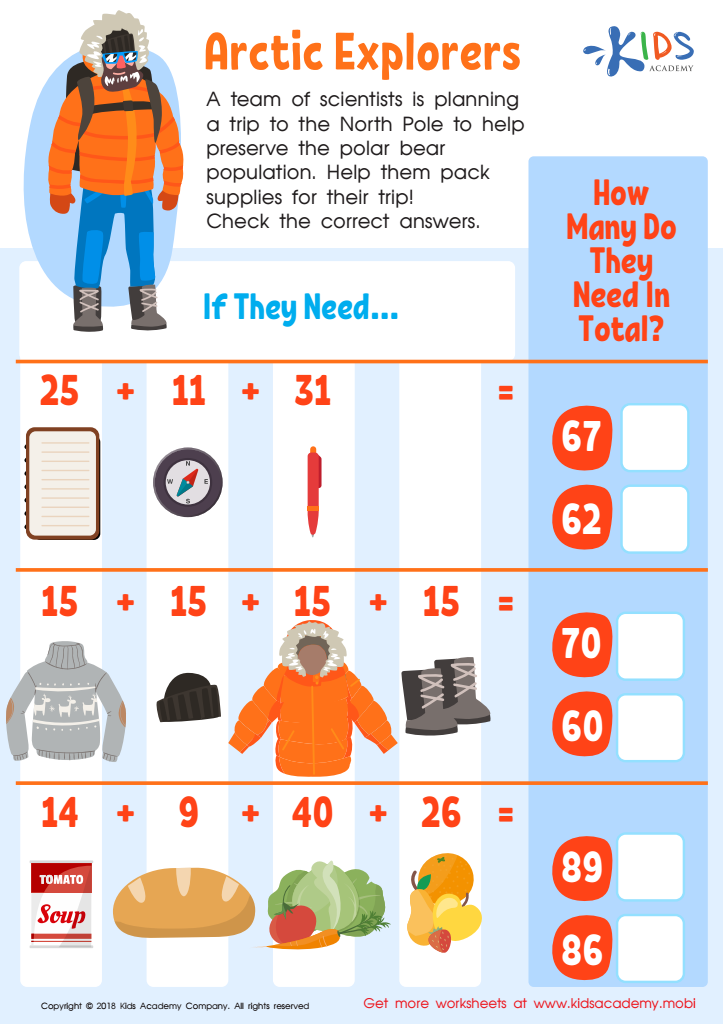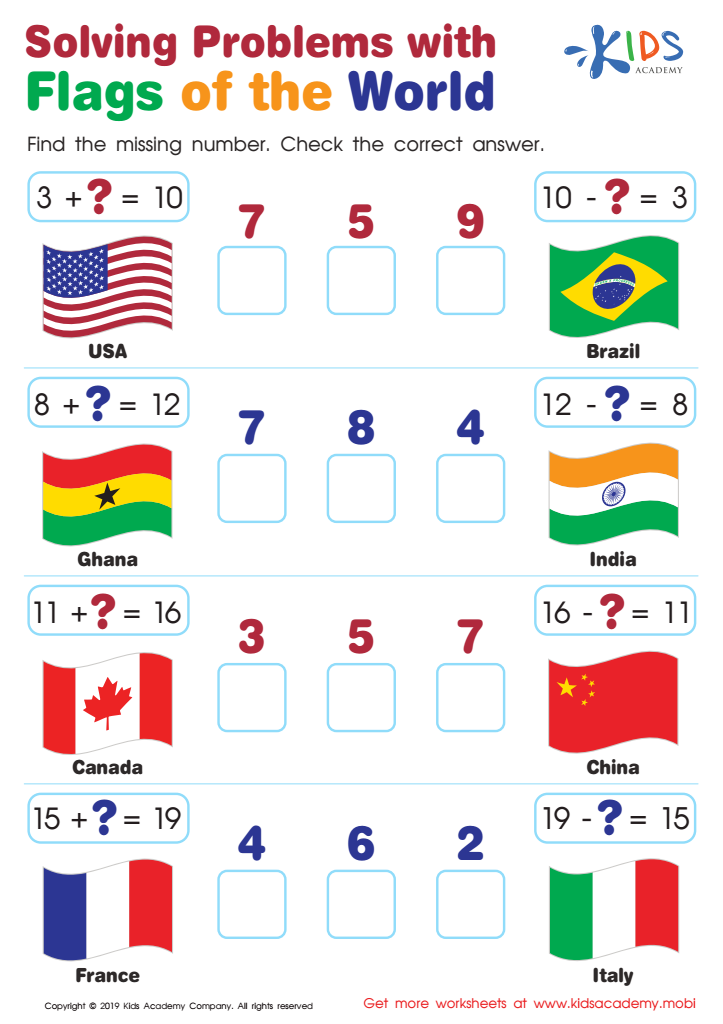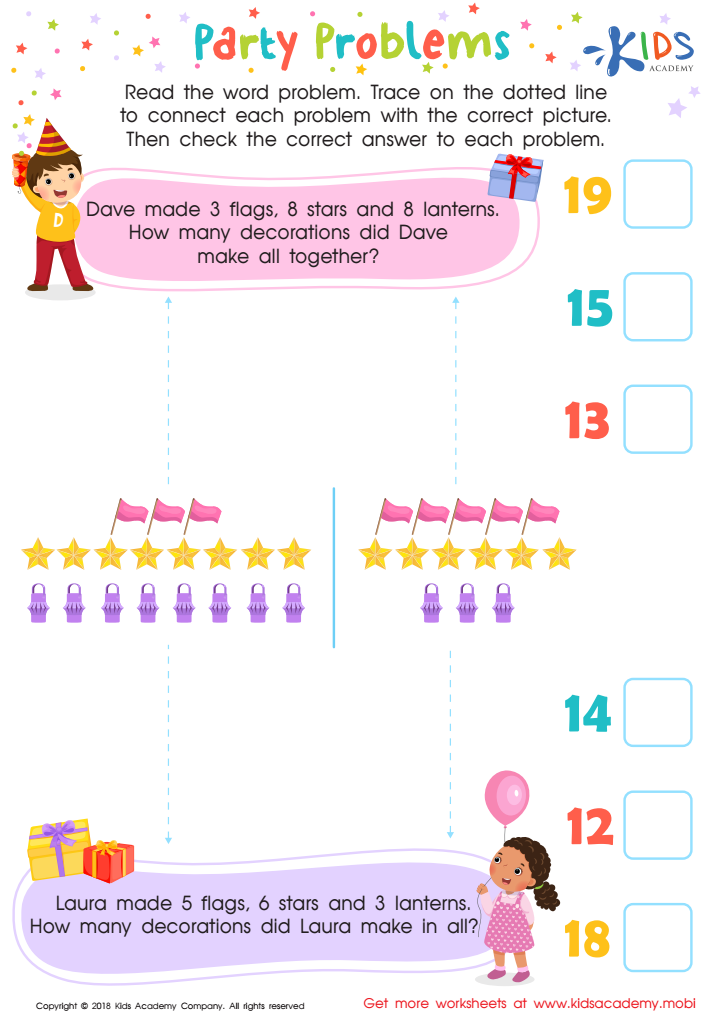Critical Thinking Normal Math Worksheets for 7-Year-Olds
6 filtered results
-
From - To
Unlock your child's potential with our "Critical Thinking Normal Math Worksheets for 7-Year-Olds." Designed to challenge young minds, these worksheets blend age-appropriate math problems with critical thinking exercises to enhance problem-solving skills. Kids can expect fun, engaging activities that promote logical reasoning, pattern recognition, and strategic thinking. Perfect for both classroom and at-home learning, our worksheets make math exciting and educational. Tailored specifically for 7-year-olds, they are an excellent resource to support your child's academic growth and build a strong mathematical foundation. Give your child the tools to excel in math and beyond!


Tricky Problems Worksheet: Part 1


Engineering a Solution: Comparing Pros and Cons Worksheet


Arctic Explorers Worksheet


Word Problems: Assessment 2 Worksheet


Solving Problems with Flags of the World Worksheet


Party Problems Worksheet
Parents and teachers play a crucial role in fostering the early development of critical thinking and basic math skills in 7-year-olds. At this age, children's brains are highly receptive, making it an ideal time to cultivate these foundational skills. Critical thinking allows children to analyze information, solve problems, and make informed decisions, skills that are invaluable throughout life. Incorporating critical thinking into math lessons not only boosts mathematical understanding but also helps children apply logical reasoning and evaluate their thought processes.
Teaching normal math at this age lays down the groundwork for more complex mathematical concepts they will encounter in later grades. It helps enhance cognitive abilities, including attention, memory, and pattern recognition. Moreover, understanding math basics early on builds confidence and reduces anxiety toward the subject in future academic challenges.
Parents and teachers should collaborate to create an encouraging, engaging learning environment. Incorporating everyday situations into math lessons can make learning relevant and practical. For instance, asking children to help measure ingredients while cooking or counting change in a store fosters real-world applications of math. In conclusion, instilling critical thinking and fundamental math skills in 7-year-olds empowers them to face academic and life challenges with confidence and competence.
 Assign to My Students
Assign to My Students















